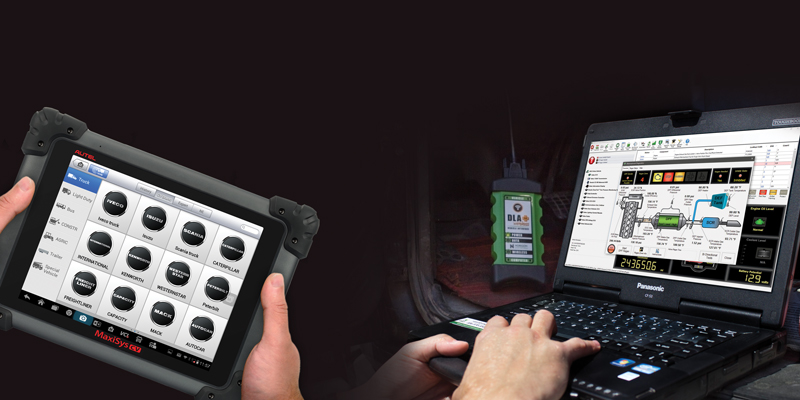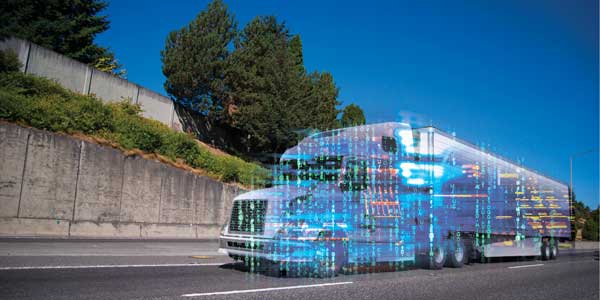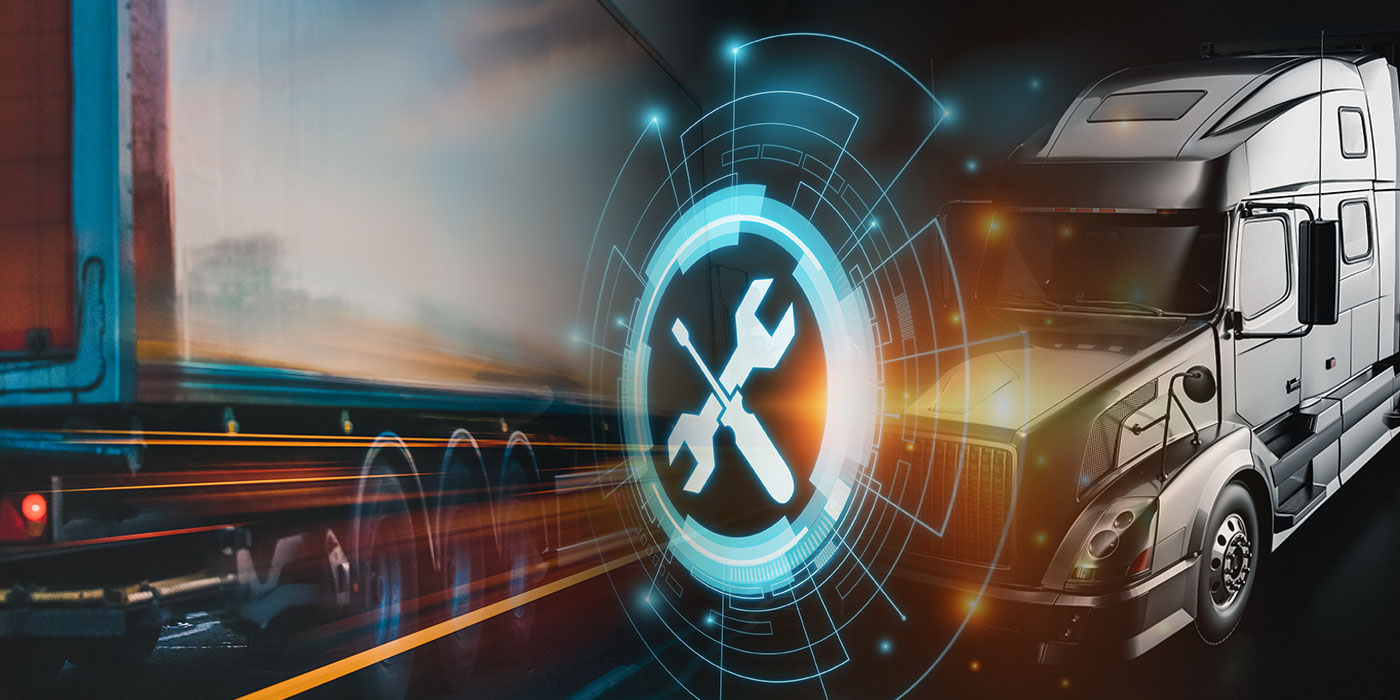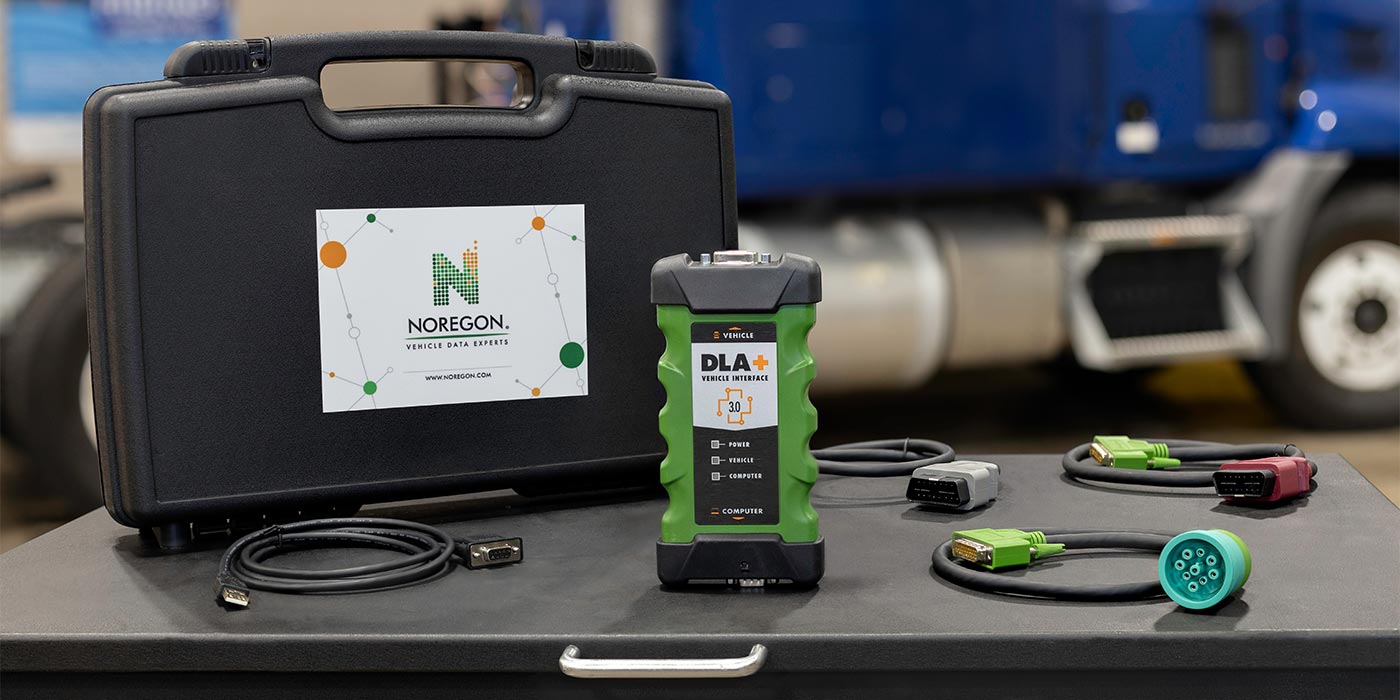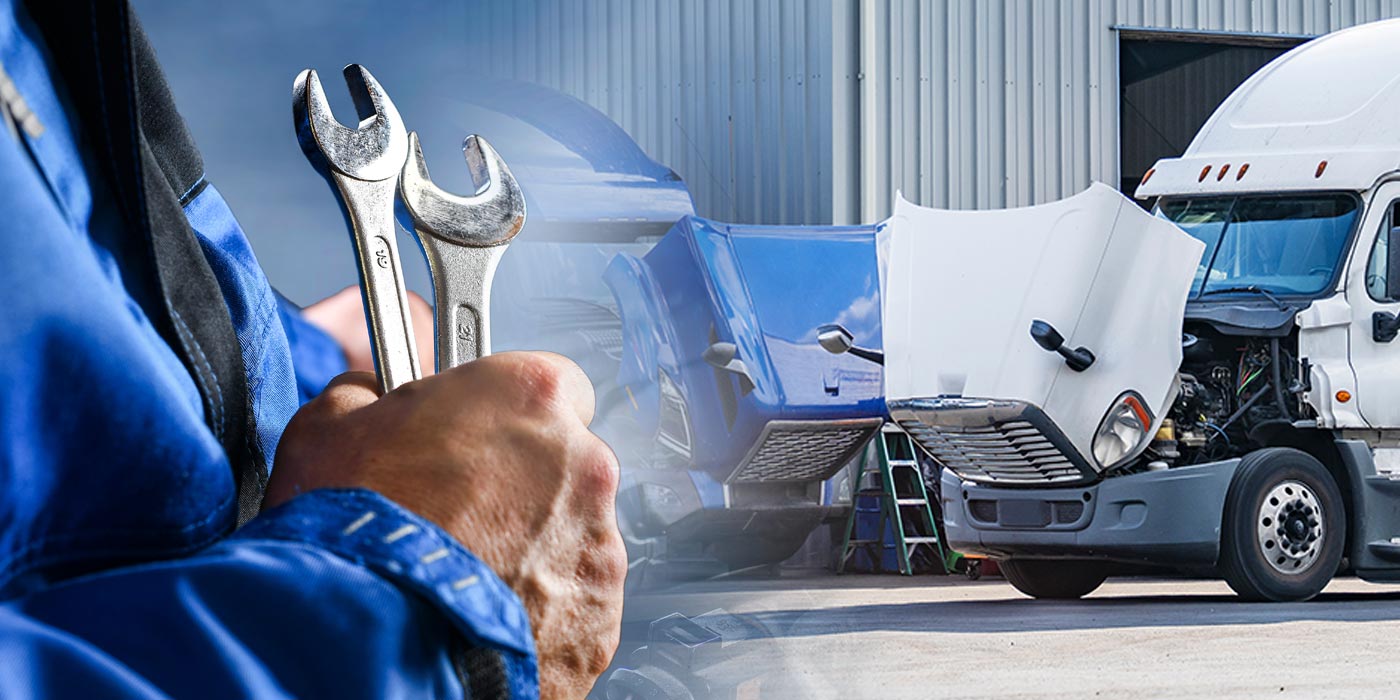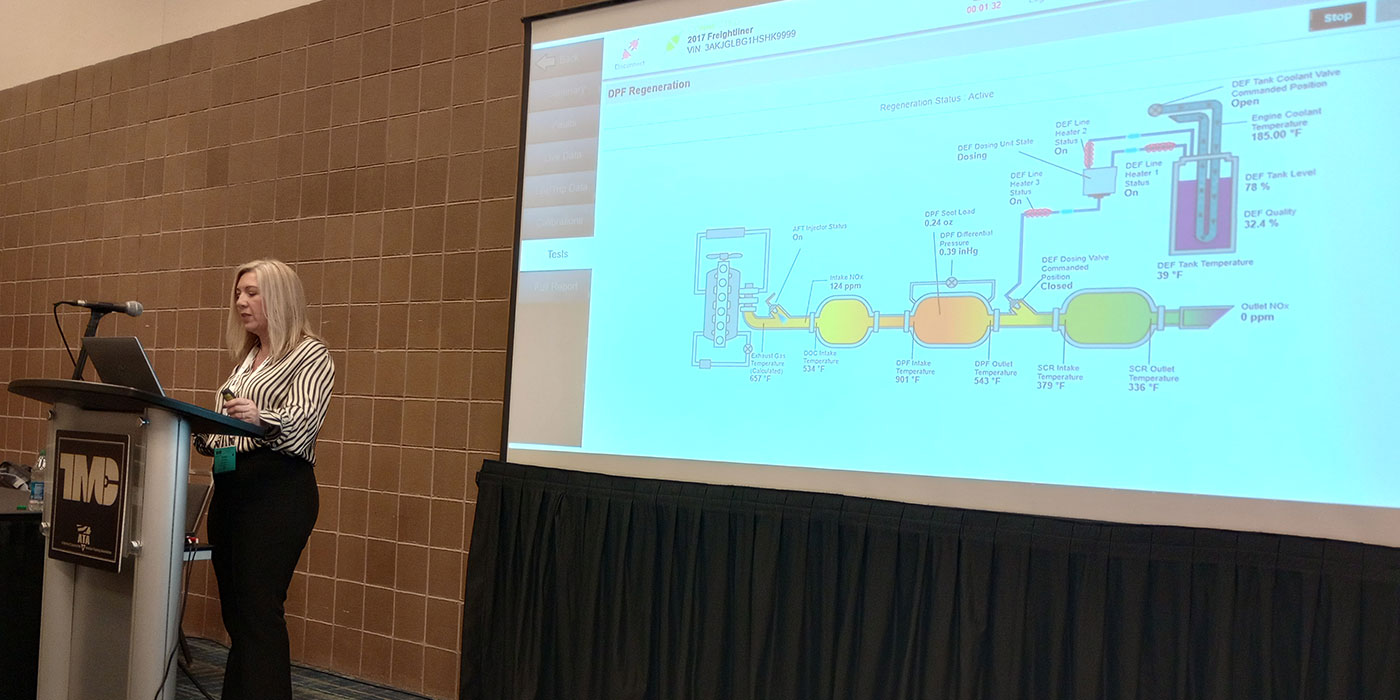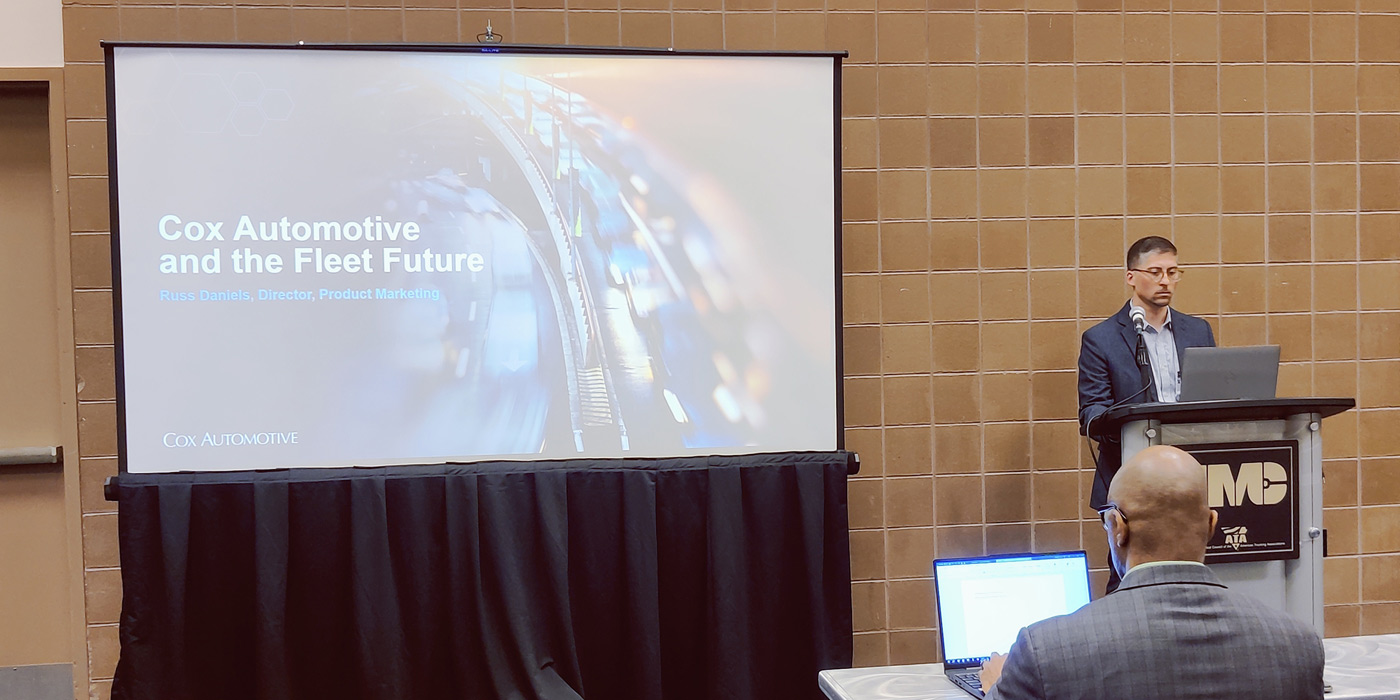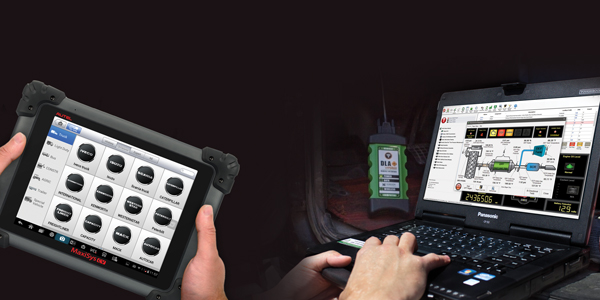
Picture a fleet whose job it is to keep an airport’s runway and taxiways clear of snow during the winter. Due to the nature of the job, prolonged idling causes soot to build up in the engine, leading, potentially, to the truck’s engine entering derate mode. If that fleet doesn’t own the proper scan tools, then they have to call the OEM’s dealer out to address with the issue. This costs the fleet both time and money and prevents the snow from being cleared at a busy airport.
This situation is an example of why owning the proper scan tool is critical to a smoothly-running fleet, shares Chris Freeman, director of heavy-duty sales/training at Autel.
“Every time this fleet calls the dealer out to unlock this derate, it costs $300. Well, they call them out on average 25 times a year, so you can see how that cost adds up very quickly,” he says.
Transportation logistics can be tough enough to manage without a truck being sidelined due to a maintenance issue. Fleet managers can help avoid the downtime of waiting on or sending a truck to the dealership by owning the right scan tools. Not only can this minimize headaches, it can save the fleet money.
“The biggest advantage of having the right diagnostic and repair solution in a fleet shop is the uptime it generates,” says Jason Hedman, product manager at Noregon. “These tools permit thorough repairs, which lead to healthier vehicles that experience fewer breakdowns and emergency repairs.”
Autel’s Freeman agrees, and notes that having the proper tools can help fleets notice maintenance trends and catch issues before they hit the road.
“One instant ROI [of owning a scan tool] would to be able to track repairs and notice trends when you’re experiencing multiple of the same repair,” he says. “[The tool] will help you catch smaller problems before they turn into bigger problems, and capture those problems before they get out on the road 400 or 500 miles away.”
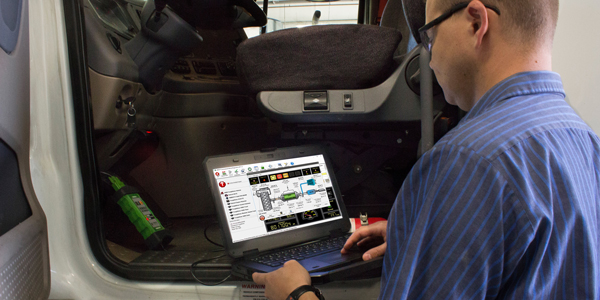
Finding the right tool
“The heavy-duty environment is very specialized, which requires the fleet managers to be well-versed in the market and the need for a truly specialized tool to perform the repairs to grow the overall revenue of their shops,” notes a representative from Launch Tech USA.
The spokesperson advises fleet managers understand the basic function of the scan tools they’re looking to purchase and its practical applications.
Fleets have two options for scan tools: original equipment manufacturer (OEM) and aftermarket. An OEM scan tool focuses on software for just one make and component of a truck. Meanwhile, an aftermarket scan tool focuses on a broader offering of software, makes and components. Which choice is right for your fleet depends on your needs, vehicle diversification and budget.
“The biggest advantage of having the right diagnostic and repair solution in a fleet shop is the uptime it generates.”
Jason Hedman, Noregon
“Aftermarket is going to be your best way to actually cover all of your functionality at one time (ABS, transmission, engine, etc.). OEM is more accurate. But it’s more independent of each of the individual systems,” says Autel’s Freeman.
Noregon’s Hedman agrees that it’s important to find a scan tool that can look at multiple systems in a truck at the same time, versus focusing on one component at a time.
“Fleet managers should also recognize the importance of simultaneously diagnosing the entire vehicle. Given how one ECU can affect another, coupled with the cost of unplanned downtime caused by not diagnosing the entire vehicle, it is essential that every issue is repaired on the truck when it’s in the shop the first time,” he says.
Hedman notes, however, that there isn’t one “catch all” scan tool.
“There isn’t a tool available today that will perform every function necessary for every vehicle that enters the bay. The goal is to find the tool that will help diagnose the entire fleet and alleviate the need for serialized diagnostics,” he says.
Some functions available in aftermarket scan tools include the ability to perform resets on a variety of systems and historical data storage. Some scan tools even offer features that can walk an entry-level technician through a job, freeing up an advanced technician from the need to assist with diagnosis. The tools may also offer training opportunities for technicians.
“All scan tools are not the same. I would say before you buy, go out and test drive as many as you can before making a decision,” Freeman advises. “There are a lot out there that are ‘OEM level’ or ‘OEM-priced level’ tools, that do not give you all the functionality. And then there’s some that give you a lot of functionality for a lower price. So don’t always look at the price, look at the content of the software before you make a decision.”
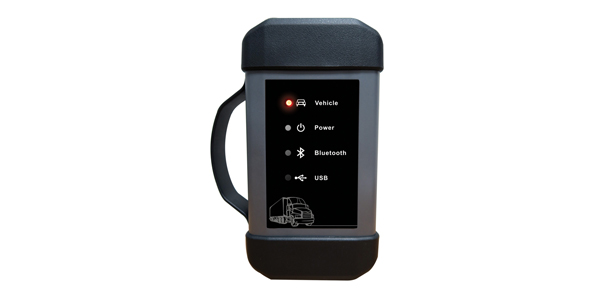
Don’t forget software updates
One scan tool feature fleet managers would be remiss to overlook is regular software updates. Providers will offer updates throughout the year, as glitches are found and new diagnostic information is shared.
“Fleet managers should understand how important it is to purchase a diagnostic and repair solution that is regularly updated,” Noregon’s Hedman says. “We have routine conversations with customers to understand what product enhancements could help their day-to-day business activities, so whether that means adding new features or applying coverage updates, it is important for the tool to evolve at the same rate as the fleets’ assets.”
Having the right scan tool is just the first step for success for fleets. If a fleet isn’t maintaining updates to that scan tool, the tool’s benefits are negated.
“If your scan tool is not up to date, you may not have the functionality to diagnosis a truck that comes into your bays,” says Autel’s Freeman. “If you’re running older software or you haven’t had it updated and a newer vehicle comes into your shop, you won’t be able to read it and won’t be able to scan it properly. There could be a problem with the truck and you not be able to see it and it’d be a safety issue down the line.”
In addition to allowing fleets’ repair bays to deal with maintenance issues, keeping scan tool software up to date can also help combat security issues.
“Given the rise of cyber security-related concerns for the advanced systems on commercial trucks, it is best to keep shop tools updated in case a recent patch addressed a potential security threat,” says Hedman.
An investment in the bays
While a scan tool won’t solve the technician shortage, it could help ease your fleet’s technician pains by attracting new talent, getting new technicians up to speed and freeing up advanced technicians for more complex work.
“Fleet managers should know that the right diagnostic tool will help improve the overall health of their fleet vehicles. Given how complex commercial trucks have become, the days of expecting technicians to diagnose and repair vehicles based on basic scan tool readings are gone. Advanced tools in today’s market help teach the technician while he or she repairs the vehicle to improve shop efficiency,” Hedman says.
“Equipping technicians with the right tools correlates to more satisfied employees, too. It can be frustrating to not be given the tools to effectively and efficiently perform a job, so anything that makes the technician’s job easier and helps him or her perform more effective repairs will benefit all involved,” he continues.
If a fleet isn’t maintaining updates for their scan tool, the tool’s benefits are negated.
Autel’s Freeman also notes that having the right scan tools can help bring along new technicians faster.
“The easier the scan tool functions, the easier we can bring along newer techs,” he says.
So, fleets looking to spend less time at the OEM dealership and more time on the road should look into investing in the proper scan tools for its own bays. And helping to mitigate the cost is the fact that you don’t need to get a different scan tool for each technician, like you might for other tools.
“If a technician is certified on particular OEM components and software, add those specific component-based applications to their device,” Hedman says. “You will likely find that fewer copies of lesser-used software can be spread across the shop while each technician needs their own copy of commonly used applications. Liken it to physical tools—every technician should have his or her own socket wrench, but a set of specialized sensor sockets could be split between multiple technicians.”

